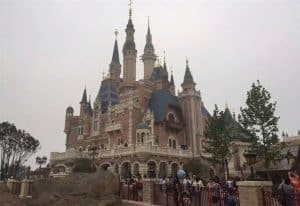- Car Rental Software, Uncategorized
- July 19, 2016
VW done with diesel push in U.S., exec says
CHATTANOOGA — Volkswagen will take a step back from the diesel powertrains that defined its U.S. vehicle lineup for the better part of a decade amid a repositioning of the brand in the aftermath of the automaker’s emissions scandal, VW’s top U.S. official says.
Hinrich Woebcken, CEO of Volkswagen Group of America, told Automotive News this week that VW won’t relaunch “clean diesels” as a core element of its brand identity in the U.S., where VW dominated diesel passenger car sales before being consumed by its emissions cheating scandal.
Diesels are in VW’s plans for 2017 through 2019, assuming regulatory approval, Woebcken said, but the company is re-evaluating the role of the powertrain in its U.S. lineup further in the future.
“We are not stopping diesel. Wherever diesel makes sense as a package to the car, we’ll continue,” Woebcken said. “But in reality, we have to accept that the high percentage of diesels that we had before will not come back again.”
The recognition reflects a significant shift for VW, which prior to the scandal offered a diesel engine in six of the eight nameplates it sold in the U.S., accounting for more than 20 percent of its pre-scandal U.S. sales and the lion’s share of all U.S. diesel car sales.
VW halted sales of 2015 model diesels in September 2015 after the EPA announced the company’s emissions violations. In October, VW withdrew requests for EPA approvals needed to sell 2016 model diesels. It hasn’t yet asked for EPA permission to begin selling new diesels again.
Tougher penalties
VW’s thinking also reflects the challenges that it and other automakers offering diesels will face from that so-called Tier 3 tailpipe emissions regulations that take effect in 2017. The U.S. rules start to get much tougher after 2019, especially for oxides of nitrogen emissions, and are expected to require significant changes to diesel emissions systems.
“The regulations from 2019-2020 are going to be so hard that we would have had to find an alternative to a certain extent anyhow,” Woebcken said. “The diesel crisis is forcing us simply to think about this earlier.”
As Volkswagen works to rebuild from the crisis, a broad effort is under way to reposition its U.S. brand identity, placing a greater emphasis on crossovers and all-wheel-drive offerings in the near term and electrified vehicles in the future.
New products
That will begin this fall with the arrival of the Golf Alltrack. The higher-riding Golf wagon with a more rugged appearance and awd goes on sale this fall as a competitor to vehicles such as the Subaru Outback and XV Crosstrek.
VW’s long-awaited midsize crossover, assembled at VW’s factory here, will hit showrooms in late March or early April, Woebcken said. A new, longer-wheelbase Tiguan compact crossover built at VW’s sprawling plant in Puebla, Mexico, will arrive about three months later.
Unlike the premium pricing of its current Tiguan and Touareg crossovers, Woebcken said, the new crossover duo will be priced competitively in the mainstream compact and midsize crossover segments. Both models will be built in North America with nearly all components sourced locally, though not the powertrain, Woebcken said.
In 2020, he said, VW plans to introduce the first of multiple electric vehicles in the U.S. based on VW’s new MEB modular battery-electric platform announced in late 2015. VW also is looking to deploy electrification and hybrid technologies more broadly in its lineup, Woebcken said.
Source: Automotive News


